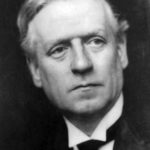‘Politics’ is an English plural noun, which can correctly be used with a singular or plural verb, though in the Noughties it has mostly been accompanied by a singular verb. It is the science or art (or manipulation) of government. It is the expression of political views, appropriate discussion of current affairs, the search after Truth through question and answer. In most developed countries political philosophy is a subject for study and examination at University level.
A ‘politician’ is a person taking part in politics, originally out of strong or even genuinely patriotic interest in the subject. The 20th century saw the phenomenon of persons involved in politics being paid a salary with expenses. This introduced motives of personal gain, either in wealth or power. From that moment on politicians ceased to be people interested in government alone. They were and are interested in what government (ie. politics) can bring them. It is an acknowledged fact that countries which pay their politicians well run less risk of corruption, and the opposite is, unfortunately true as well.
In all developed countries the politician is expected to hold curriculum vitae proving his/her completed education including university studies. In underdeveloped countries politicians may rise through the ranks to great power simply by being a devoted and/or radical member of his/her chosen political party. Military persons may gain political power by employing military force, later denying it to others.
Politics is not a product of democracy. It expresses the self-interests of the most powerful, and the rest either sign up to those interests or not: hence the evolution of the majority and minority in government, at whatever level (Prof. C Lee, 2009).
The Democratic Party was founded in the United States in 1828, and Andrew Jackson was the first Democrat president (1829 – 37). With 1960 as a start date, the Democrats favoured social welfare, giving aid to underdeveloped countries, and civil rights.
The first Republican Party was founded in the US by Thomas Jefferson in 1792, in defence of agrarian interests, to oppose slavery and protect the rights of States, though the GOP (Grand Old Party) split into several factions later (1820s).
The Liberal Party in the United Kingdom was the political heir to the Whig reformers, who were the first to declare themselves ‘liberals’. The first Liberal government however was not formed until 1868, under William E. Gladstone.
In 1899 the Labour Representation Committee combined all the socialist groups, and the first British Labour Party had as its secretary the Scot Ramsay Macdonald.
Britain’s modern Conservative Party dates from Robert Peel’s ‘Tamworth Manifesto’ of 1834, though the term conservative was probably first used by George Canning ten years earlier. The term Tories is pejorative and comes from the Irish. The pejorative tone is used in modern Spain, where Socialistas are referred to as socioslistos or sociatas, which is why modern socialists prefer to be called progresistas.
Quotations:
Benjamin Disraeli 1804 – 1891
“A Conservative Government is an organised hypocrisy”
“England does not love coalitions”
“Finality is not the language of politics”
“Party is organised opinion”
“No Government can be long secure without a strong Opposition”
“The practice of politics in the East may be defined by one word – dissimulation”
George Bernard Shaw 1856 – 1950
“What Englishman will give his mind to politics as long as he can afford to keep a motor car?”
Jonathan Swift 1667 – 1745
It is alleged indeed, that the high heels are most agreeable to our ancient constitution: but however this be, his Majesty hath determined to make use of only low heels in the administration of the government”
“ . . . whoever could make two ears of corn or two blades of grass grow upon a spot of ground where only one grew before, would . . . do more essential service to his country than the whole race of politicians put together!”
e. e. cummings 1894 – 1962
“a politician is an arse upon which everyone has sat except a man”
Edmund Burke 1729 – 97
“Magnanimity in politics is not seldom the truest wisdom”
C. Northcote Parkinson 1909 – 93
“Men enter local politics solely as a result of being unhappily married”
Charles de Gaulle 1890 – 1970
“Politics are too serious a matter to be left to the politicians”
Samuel Johnson 1709 – 84)
“Politics are now no more than a means of rising in the world”
Henry Brooks Adams 1838 -1918
“Modern politics is, at bottom, a struggle not of men but of forces”
“Practical politics consists in ignoring facts”
J.K. Galbraith
“Politics is not the art of the possible. It consists in choosing betrween the disastrous and the unpalateable”
Ronald Reagan
“Politics is supposed to be the second oldest profession. I have come to realise that it bears a very close relation to the first”









Leave A Comment